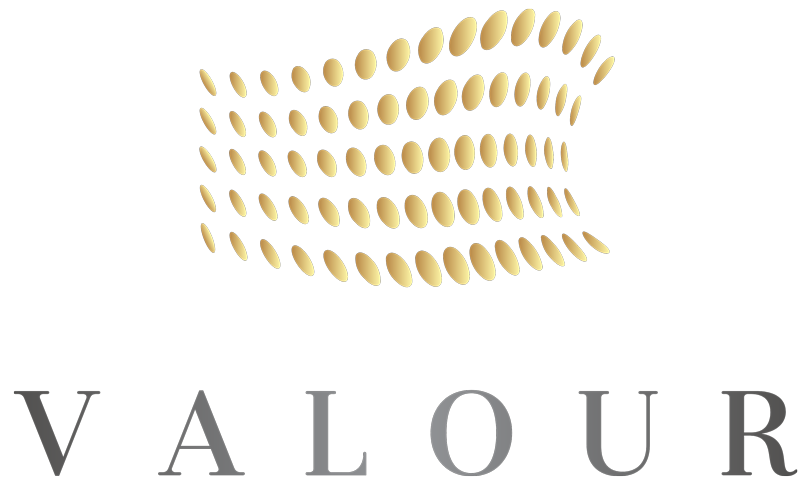What is the IB DP? Understand the Six Subject Groups and Three Core Components at a Glance
1. Introduction to the IB Diploma Programme (IB DP)
IBDP (International Baccalaureate Diploma Programme)
The IBDP is a two-year pre-university program designed for students aged 16–19 (typically grades 11–12).
- Six subject groups: Language & Literature, Language Acquisition, Individuals & Societies, Sciences, Mathematics, Arts
Three core components: Theory of Knowledge (TOK), Extended Essay (EE), Creativity, Activity, Service (CAS) - IB is more than an exam-focused curriculum; it cultivates independent learning, critical thinking, and the ability to face global challenges.
The program develops students academically, personally, and practically, shaping well-rounded individuals with strong future competitiveness.
2. Advantages of the IB Diploma Programme (IB DP)
- Global University Recognition
The IBDP diploma is recognized by over 5,000 universities worldwide, supporting applications to top international institutions and overseas studies. - Holistic Education Design
The IB curriculum combines academics, critical thinking, and community service, emphasizing the all round development of students. - High Academic Challenge & In-Depth Learning
IBDP Higher Level (HL) courses train students in research, writing, and analytical skills, providing solid preparation for university studies. - Cultivating International Perspective & Interdisciplinary Skills
The IB emphasizes global awareness and cross disciplinary learning, enhancing students’ international competitiveness and multicultural understanding.
- Enhancing Academic English Skills
Through English-taught courses and essay writing (e.g., EE, TOK), students effectively improve their academic English communication abilities. - Supports University Applications & Credit Transfer
Many top universities offer IB students credit exemptions, priority review, or conditional admission opportunities. - Fosters Independent Learning & Time Management
The IB curriculum encourages self planning and independent study, developing core skills essential for university and future careers.
3. The Six Subject Groups of IB DP
For each subject group, students select one course to study. The first to fifth subjects are compulsory (with the option to replace the second subject with one from the first group), while the sixth subject can be chosen from any of the courses in groups one to four. Among the six subjects, students must choose 3–4 Higher Level (HL) courses, which have 240 instructional hours, while Standard Level (SL) courses have 120 instructional hours.
Subjects highlighted in color indicate courses offered by Valour.
1. Studies in Language and Literature
- Literature (SL/HL)
- Language and Literature (SL/HL)
- Literature and Performance (SL) – only available in English, French, or Spanish
2. Language Acquisition
-
Modern Languages (SL/HL)
-
Latin or Classical Greek (SL/HL)
3. Mathematics
-
Mathematics: Analysis and Approaches (SL/HL)
-
Mathematics: Applications and Interpretation (SL/HL)
4. Individuals and Societies
-
Business Management (SL/HL)
-
Economics (SL/HL)
-
Geography (SL/HL)
-
Global Politics (SL/HL)
-
History (SL/HL)
-
Information Technology in a Global Society (SL/HL)
-
Philosophy (SL/HL)
-
Psychology (SL/HL)
-
Social and Cultural Anthropology (SL/HL)
-
World Religions (SL only)
5. Sciences
-
Biology (SL/HL)
-
Computer Science (SL/HL)
-
Chemistry (SL/HL)
-
Design Technology (SL/HL)
-
Physics (SL/HL)
-
Sports, Exercise and Health Science (SL/HL)
6. The Arts
-
Dance (SL/HL)
-
Music (SL/HL)
-
Film (SL/HL)
-
Theatre (SL/HL)
-
Visual Arts (SL/HL)
*SL:Standard Level、HL:Higher Level
1. Theory of Knowledge (TOK)
- Students complete the TOK Exhibition (internal assessment) and write a 1,600 word essay in English or a 2,000 character essay in Chinese (external assessment), reflecting on the nature of knowledge.
2. Extended Essay (EE)
- An independent research project resulting in a 4,000 word essay in English on a topic related to one of the six DP subjects.
(If the student chooses a subject available in Chinese, the EE may be written in Chinese, with a word limit of 4,800 characters.)
Students will receive guidance from a supervisor and are required to complete three reflection sessions.
3. Creativity, Activity, Service (CAS)
- Students design and complete a project that integrates personal experience with one or more strands of Creativity, Activity, or Service.
Projects may combine two or more components.
Notes:
-
Available subjects depend on the offerings of each school.
-
Except for language acquisition courses, all other subjects are taught in English.
-
Completion of all three core components is mandatory; failure to do so will result in the IB diploma not being awarded.
5. IB DP Assessment Structure
1. IB DP Examination Schedule
The IB Diploma Programme (DP) examinations are administered by the International Baccalaureate Organization (IBO) and are held once a year, over a period of approximately 3 to 4 weeks.
-
For students in the Northern Hemisphere, final examinations are conducted in May of the second DP year.
-
For students in the Southern Hemisphere, examinations are held in November.
After completing the exams in May, students are required to submit their IB scores to universities to confirm whether they meet the admission requirements.
Examinations are conducted at the school and include both:
-
External Assessment (graded by IB examiners)
-
Internal Assessment (graded by school teachers and moderated by the IB)
2. IB DP Internal and External Assessment
External Assessment
Written examinations are the primary form of assessment for most subjects.
The format varies depending on the subject and is graded by external IB examiners, ensuring a high degree of objectivity and reliability.
Common types of exam questions include:
-
Essays
-
Structured Problems
-
Short-Response Questions
-
Data-Response Questions
-
Text-Response Questions
-
Case-Study Questions
-
Multiple-Choice Questions (rarely used)
Internal Assessment (IA)
Internal assessments are graded by the course teachers, and a sample is moderated by the IB to maintain consistent standards.
Examples of internal assessment formats include:
-
Oral Work in Languages
-
Fieldwork in Geography
-
Laboratory Work in the Sciences
-
Investigations in Mathematics
-
Artistic Performances
-
Internal Assessment Essays
3. IB DP Grading System
- Students are assessed in six subjects, each with a maximum score of 7 points, resulting in a total of up to 42 points. In addition to the subject scores, the three core components contribute to the final diploma score: Theory of Knowledge (TOK) and the Extended Essay (EE) together can earn up to 3 additional points, while Creativity, Activity, Service (CAS) is a required component but does not contribute any points. The overall maximum score is 45 points, and students must achieve a minimum of 24 points to be awarded the diploma.
4. Bilingual Diploma
- Students must successfully complete two Language and Literature courses in different languages, each with a score of 3 or above; or they must take an Individuals and Societies or Sciences subject in a language different from their Language and Literature course, and also achieve a score of 3 or above in that subject.
6. IB DP Schools in Taiwan
The following schools in Taiwan offer the IB Diploma Programme (IBDP®):
| SCHOOL NAME | LANGUAGE PROVIDED | |
|---|---|---|
| Northern | Kang Chiao International School (Xiugang Campus) |
Chinese, English, Other (Languages) |
| Taipei American School | English | |
| Taipei European School | English | |
| Taipei Kuei Shan School | Chinese, English | |
| Taipei Municipal Xisong High School | Chinese, English, Other (Languages) | |
| Taipei Municipal Zhong Zheng Senior High School | Chinese, English, Other (Languages) | |
| Taoyuan Municipal Dayuan International Senior High School | Chinese, English, Other (Languages) | |
| Central | Victoria Academy | Chinese, English, Other (Languages) |
| Mingdao High School | Chinese, English, Other (Languages) | |
| Southern | Kaohsiung American School | English |
| I-Shou International School | Chinese, English, Other (Languages) |
7. What Kind of Students Are Suitable for the IB® Programme?
- Effective Time Management
The IB Diploma Programme lasts for two years and is intensive and challenging. Besides the six subject groups, students must complete both internal and external assessments (IAs and exams), write the Extended Essay (EE), and participate in the Theory of Knowledge (TOK) course. Managing coursework for each subject on time is crucial, making time management a vital skill for students. - Interdisciplinary Learning Ability
The IB curriculum emphasizes holistic learning, encouraging students to explore various fields with curiosity and to make meaningful interdisciplinary connections. Especially in essay writing, the IB fosters critical thinking skills, expecting students to present diverse perspectives and to be capable of integrating, analyzing, and clearly expressing their own viewpoints. - Writing and Communication Skills
Writing skills are highly valued in the IB Programme. Whether in daily assignments, classroom discussions, or internal and external assessments, students need to demonstrate clear and well organized written expression. Good language organization and vocabulary help students deepen their understanding of the curriculum and effectively convey their academic reasoning and ideas.
8. Q&A
Q: The courses are divided into Standard Level (SL) and Higher Level (HL). How should I choose which to take?
A: Higher Level (HL) courses require 240 teaching hours, while Standard Level (SL) courses require 120 hours. It is recommended that students select HL subjects based on their strengths and weaknesses, as well as university admission requirements, to focus on key subjects.
Q: Which is more difficult, IB or AP?
A: The IB Diploma Programme (IBDP) is relatively more intensive and the assessment methods include more than just written exams. Although it presents more challenges, it fosters students’ comprehensive development and practical skills. (Refer to articles about Advanced Placement (AP) for more information.)
Q: What IB score gives me an advantage for university admissions?
A: According to information from the IBO, the average IB score in recent years ranges from 29 to 32. To increase chances of admission to more competitive universities, it is safer to aim for a score of 35 or above.
Q: How should I prepare for the IBDP?
A: Valour suggests that in Grade 10, students should familiarize themselves with the content and assessment methods of each IBDP subject, and start researching intended university programs and their subject requirements.
In Grade 11, students officially begin the IBDP courses and should simultaneously prepare for university entrance requirements (such as language tests and standardized exams) while mastering the content of their IB subjects. It is recommended to keep up with teachers’ pace to avoid stress.
In Grade 12, besides applying to universities (writing applications, preparing for interviews, etc.), students should also focus intensively on the final IB exams held in May.

